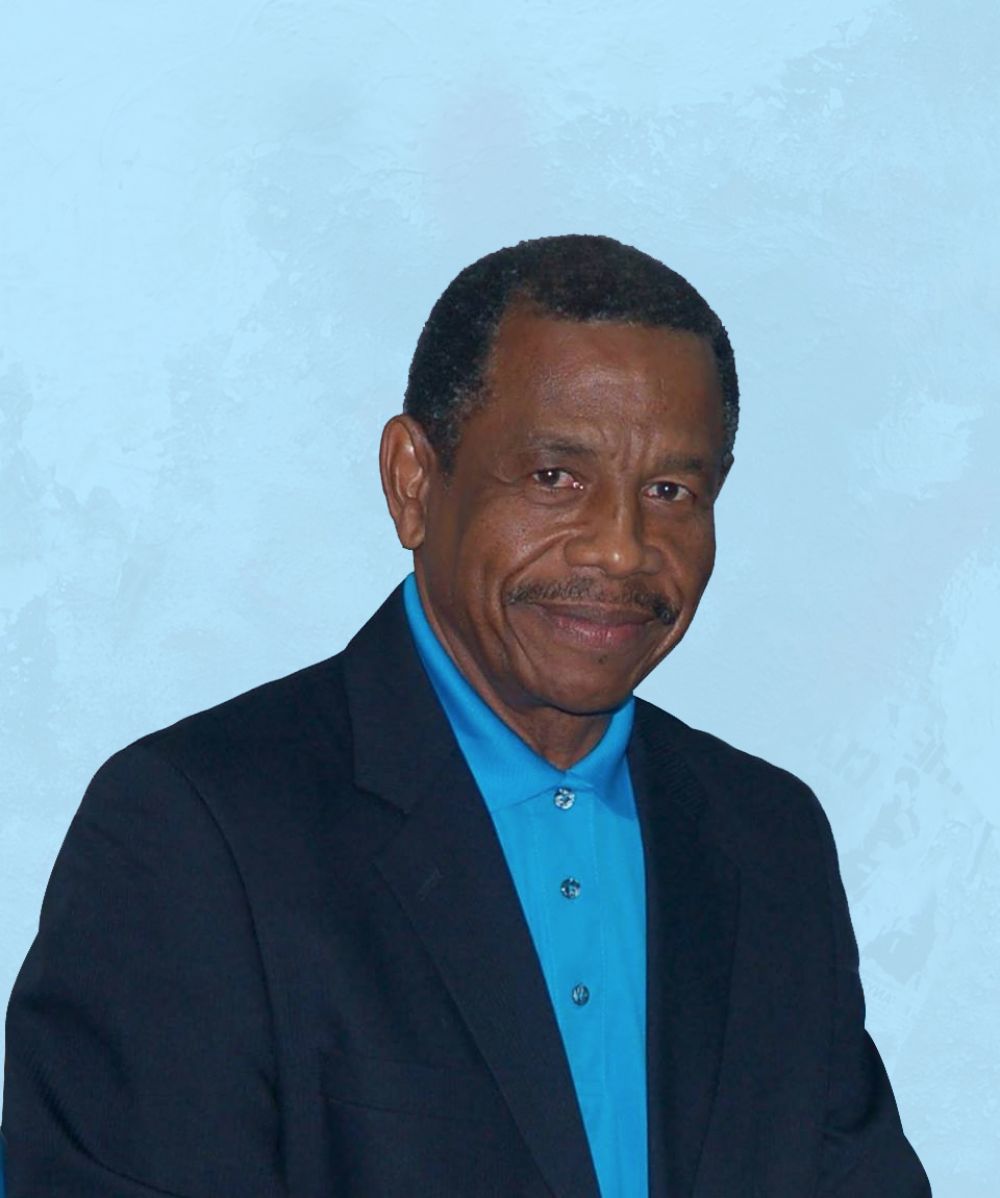Elections COM 2017 : interview with Jules Charville head of Generation Hope
♦ How did you decide to run (again) in the territorial elections?
In my case, my decision was made because of my disappointment with all of the political leaders, who over the past ten years had the opportunity to come together and work for the economic development of Saint-Martin, but have done absolutely nothing about it.
♦ We currently talk a lot about the Saint-Martin identity, as many Saint-Martin residents feel they have lost it. As a Saint-Martin resident, do you share this feeling? Do you feel you have lost your identity?
I would not say that we have lost our identity; rather, I would say that we risk losing it, as some customs are not being transmitted anymore, even orally: dances that we knew in the past are gradually disappearing (the Ponum dance, for example) since our elders never passed them down in writing.
Thanks to modern technology, we are invaded by other cultures that don’t belong to us. Nevertheless, certain neighborhoods like Colombier and St. Louis are fighting hard to preserve the memory of "Arrow Root," "Guavaberry," and the history of "Freetown" through associations.
♦ For the past several months, there have been some very nationalistic sentiments. While on the mainland such ideas are denounced as a danger to society, here we tend to entertain them. According to you, is this less dangerous locally?
Locally, these kinds of ideas are held by a minority. Extremism should never be encouraged. However, I would say that this is less dangerous locally, since in mainland France, there are many regions who have been able to keep their customs intact and alive, while in Saint-Martin, we are watching a cultural genocide that is not to be confused with Nationalism, which promotes a race or a population.
A population without its own culture is destined for certain destruction.
♦ We always hear that economic development should be a priority because it will create jobs, wealth, etc. Although the tax policy is attractive, it is rare to find investors interested in coming to Saint-Martin. In light of the unemployment figures, all the actions carried out so far have been a failure. If you are elected in March, what measures will you implement to create jobs? With what goals?
If tax policy is attractive and investors are not interested in it, it’s simply because the marketing campaign for it is nonexistent. We will remedy that in order to encourage multinational companies to have headquarters in Saint-Martin.
To protect our businesses and relaunch their activities, we will negotiate with the State to lower social costs, or even exempt them from social charges for a period of three to four years. We will make the La Belle Créole file a priority, so that we can see a new 5-star hotel in a relatively short time. We will revive the plans for the third phase of development of our commercial port, as well as the plan to extend the runway of our airport. We will build at least two new roads from the roadway plan that has existed since 2007
♦ In terms of employment specifically, many people, including you, want to give priority to residents of Saint-Martin. This may seem fair, but we must be realistic and admit that there is a lack of skills locally, especially for senior positions. In your opinion, how can this be remedied? How can we train younger and older employees in the territory during their careers so they can advance?
To begin with, the "idea of a lack of local skills" is unfounded, or at least, it is no longer founded. We have more and more young people coming back with Master’s degrees and other diplomas. We must remedy this idea of "lack of local skills," which is more a myth than a reality.
First of all, one of the things that our territorial administration will propose, among others, will be to encourage our youth completing higher education to complete specialized one or two year training programs in various fields where the territorial administration will be likely to hire in the short, mid, long, or very long term. We also plan to encourage and guide those preparing to take the exams to enter into public service in all sectors (administration, peace officer, corrections officer, etc.), the list is exhaustive.
Next, we plan to make substantial changes in our approach to professional training (professionalization) for our young population with great expectations. It should be noted that we are in the 21st century and technology offers easier means of training through Massive Online Open Courses (MOOC).
To conclude on this subject, we (the territorial administration) must know what our student population is doing at all times, that is, their level of training or studies at the local level where they live. The same on the professional level. A mechanism to allow us to answer questions about logistics, qualifications, and professional experience is currently being studied. We can now give you the name of this mechanism: "INSPIRE, Let’s keep in touch."
♦ As for education, the observation made over the past several years is alarming: the level is very low. For several reasons: problems at the level of the language, lack of involvement of parents in their children's education, etc. According to you, what is the first obstacle to the success of our children? And how can you remove it?
Here, we propose a reflection about a "Marshall Plan" to save our children’s studies and education in Saint-Martin, and the details will be unveiled very soon.
But beyond this reflection, we have planned to negotiate with the State and the Ministry of National Education to review the method of recruiting instructors, to encourage a greater number of young people from Saint-Martin to pursue studies as teachers. For the moment, only 10% of teachers are natives of the island. That is far too few.
Another solution would be the drafting of a Guide specific to the Collectivité, to be given to each teacher coming to teach for the first time in Saint-Martin.
We also plan for a training/school for parents, and a widespread campaign to build awareness among parents of their duties and their role.
♦ Concerning the development of Marigot Bay, the current majority’s plan seems not to have attracted many investors. Some have already learned from this and want a smaller-scale project. What is your position on this development?
We are against all Marigot Bay development projects that would involve backfill. The risk of erosion of the sand of our beaches is too great. I think that the construction of a cruise port is necessary, but that it should be limited to a modern dock, able to receive four to five medium-sized cruise ships.
♦ In tax matters, it is difficult for the Collectivité to collect all taxes. It is also difficult for taxpayers to pay taxes, so for years, they did not. Unpaid taxes totaled more than €20 million last year to the Collectivité. In your opinion, how can the system be more effective? Should we remove taxes? Lower the rate of certain taxes to motivate people to pay?
Our intention is to create some new taxes that will not affect the inhabitants of our island. We also are considering creating new indirect taxes in collaborating with the Dutch side. The revenues generated by these taxes will allow us to lower the income tax rate, as well as the corporate tax rate.
Our goal is to move gradually from direct taxes to indirect taxes, and eventually eliminate taxes on revenue and corporate taxes, in the long term, in collaboration with the Dutch side.
♦ For several years, ecology and more broadly the environment have been more and more important in both national and international political discourse. There was the Grenelle Environment Forum, and then recently the COP 21 and 22. Here in Saint-Martin, this topic is missing from debates. Don’t you think, however, that the environment should be the common denominator of all considered and proposed actions?
The environment plays a major role on our friendly island. However, years of neglect, or rather of ignorance of sorting or QSHE (Editor’s Note: quality-safety-hygiene-environment) procedures, by past policies allowed for the degradation of our island’s image and cleanliness. All future plans for economic development of the island must be paired with an ecological and environmental protection plan. Other countries are light years ahead of us in terms of recycling, cleanliness, and environmental protection. It is time for us to make preserving nature a priority.
♦ Everyone agrees to a cleanup of the island. Here, garbage is picked up every day, which is not the case elsewhere, even overseas, in such a small territory. What should be implemented to make the island even cleaner?
Of course, like everyone, we are also sensitive to ecology and the environment. We have an ambitious plan that will highlight our ecology and promote our environment. Here are a few measures that we plan to implement to promote our ecology and protect our environment: better water management, mastery of renewable energy (photovoltaics, HEQ construction standards, etc.), better collection and management of household garbage, a territorial dynamic for ecology and the environment and education and environmental sensitivity and awareness of the ecosystem.
All these points are developed in consultation with environmental experts and account for the particularities of the territory.
♦ Who would you like to face in the second round on March 26?
My answer is confidential.
♦ Finally, what question would you have liked to be asked?
What do you plan to do to solve the enormous problem of the 50 geometric paces in Saint-Martin?
Download the interview:







